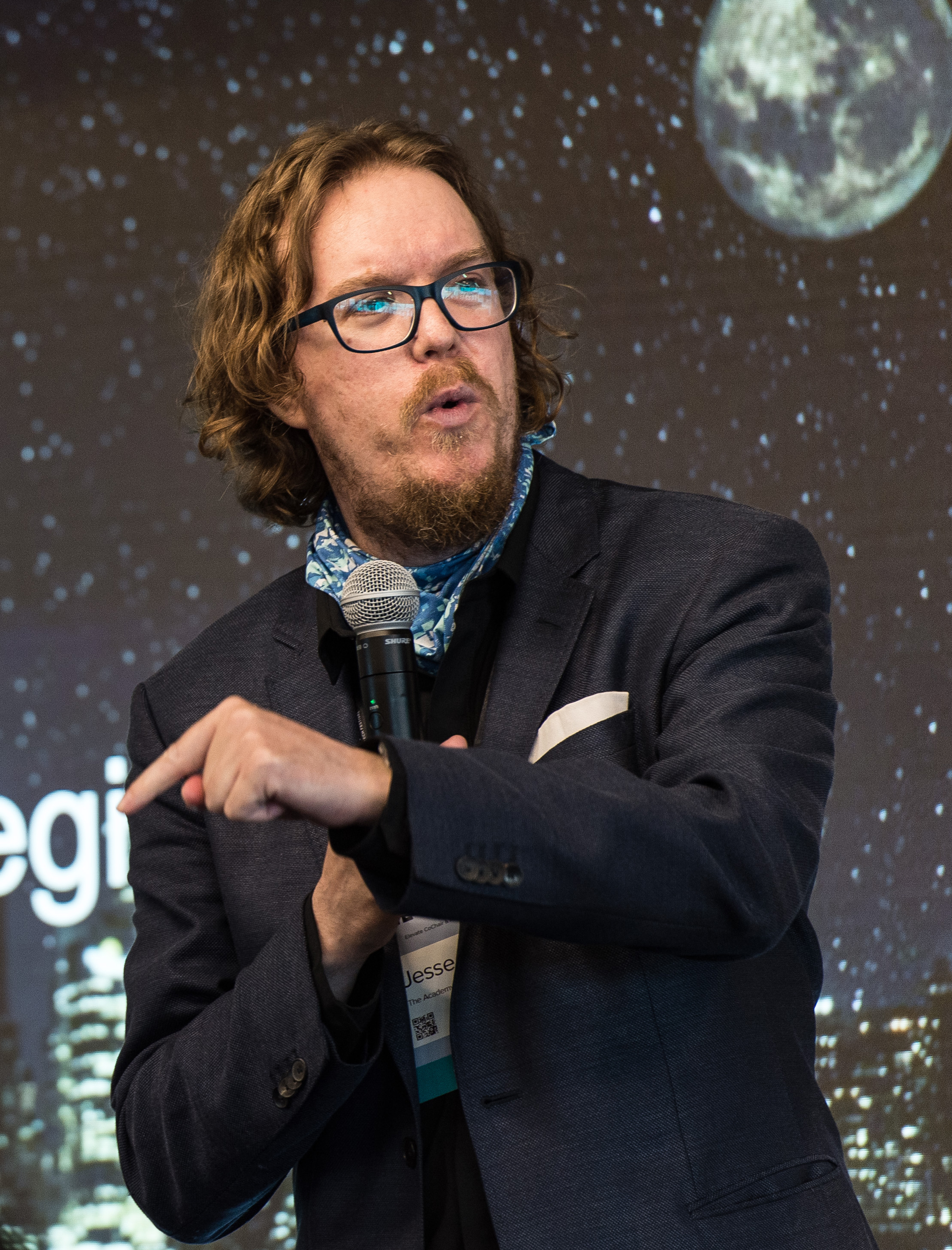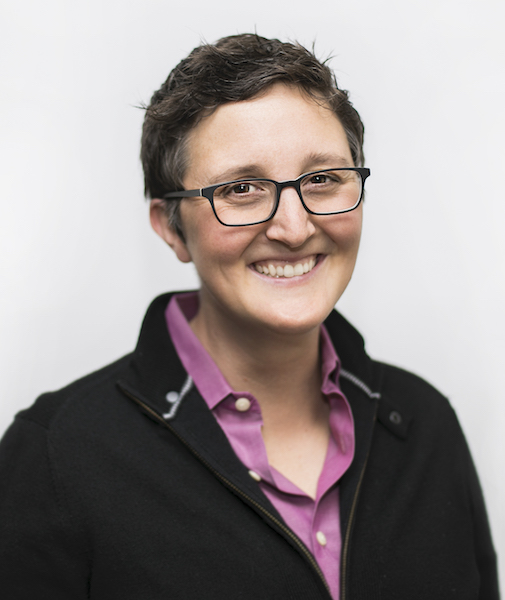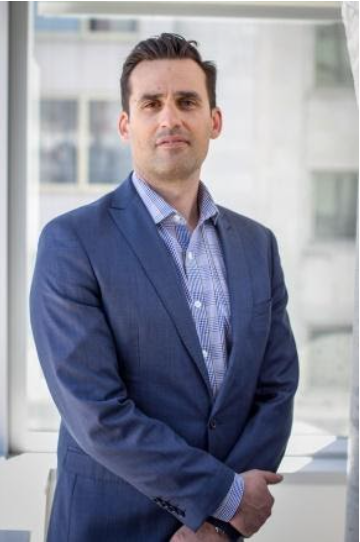Important: The GCConnex decommission will not affect GCCollab or GCWiki. Thank you and happy collaborating!
Difference between revisions of "CSPS Digital Academy Events/Policy Considerations Shaping Digital Transformation - Speaker Biographies"
| (3 intermediate revisions by the same user not shown) | |||
| Line 31: | Line 31: | ||
Academy of the Impossible, a peer to peer lifelong learning network, | Academy of the Impossible, a peer to peer lifelong learning network, | ||
and Ottawa Valley Smart Farms, an agricultural technology company. | and Ottawa Valley Smart Farms, an agricultural technology company. | ||
| + | |- | ||
| + | | | ||
| + | [[File:Hillary Hartley.jpg|frameless|center]] | ||
| + | | | ||
| + | === Hillary Hartley === | ||
| + | '''Chief Digital and Data Officer, Deputy Minister, Cabinet Office''' <br> | ||
| + | Hillary Hartley is Ontario’s Chief Digital and Data Officer and Deputy Minister, Cabinet Office. As the head of the Ontario Digital Service, Hillary is responsible for leading the government’s digital transformation efforts and the administration of the Simpler, Faster, Better Services Act to deliver simpler, more easily accessible services for the people, communities and businesses of Ontario. | ||
| + | <br><br> | ||
| + | Hillary joined the provincial government in April 2017 as Deputy Minister Responsible for Digital Government. She also served as Deputy Minister of Consumer Services, where she led the government’s retail services operation (ServiceOntario), and programs focused on consumer protection. | ||
| + | <br><br> | ||
| + | Previously, Hillary was the Deputy Executive Director of 18F, a digital services agency in the U.S. federal government, and was a Presidential Innovation Fellow in 2013. She has worked with governments, across jurisdictions, for more than twenty years, serving as a director at NIC Inc., an organization that helps governments deliver programs and services online. | ||
|- | |- | ||
| | | | ||
| Line 44: | Line 55: | ||
His research focuses on applied technical and policy methods to address ethical, safety and inclusivity concerns in using AI in different domains. He has built the largest community driven, public consultation group on AI Ethics in the world that has made significant contributions to the Montreal Declaration for Responsible AI, the G7 AI Summit, AHRC and WEF Responsible Innovation framework, PIPEDA amendments for AI impacts, Scotland’s national AI strategy and the European Commission Trustworthy AI Guidelines. His work on public competence building in AI Ethics has been recognized by governments from North America, Europe, Asia, and Oceania. More information on his work can be found at https://atg-abhishek.github.io | His research focuses on applied technical and policy methods to address ethical, safety and inclusivity concerns in using AI in different domains. He has built the largest community driven, public consultation group on AI Ethics in the world that has made significant contributions to the Montreal Declaration for Responsible AI, the G7 AI Summit, AHRC and WEF Responsible Innovation framework, PIPEDA amendments for AI impacts, Scotland’s national AI strategy and the European Commission Trustworthy AI Guidelines. His work on public competence building in AI Ethics has been recognized by governments from North America, Europe, Asia, and Oceania. More information on his work can be found at https://atg-abhishek.github.io | ||
| + | |- | ||
| + | | | ||
| + | [[File:Vernon von Finckenstein.png|frameless|center]] | ||
| + | | | ||
| + | === Vernon von Finckenstein === | ||
| + | '''Executive Director, Core Services Advisor – Core Services Enablement Team (CSET), Treasury Board of Canada Secretariat''' <br> | ||
| + | Vernon has over twenty years’ experience in the Information Technology Industry within Government Central Agencies and core and large departments (National Defence, Public Works and Employment and Social Development Canada) where he has performed a variety of large multi-year transformations and implementations of large digital platforms. Due to his deep background in transformation and data, Vernon was recruited to the policy center of Federal Government start a project to develop “a whole of government” interoperability platform which further lead Vernon, as the Chief Architect of the Government of Canada, to explore disruptive technologies such as AI, Blockchain and Open technologies culminating in the GC Digital Standards. Recently, Vernon lead the NextGen initiative where he began the adventure of developing an Agile Procurement to approach to collaboratively work with Industry to develop a Digital Solution to replace the failing Phoenix system. Currently, Vernon acts as the Core Services Advisor helping the largest transformation initiatives develop new practices that leverage or challenge existing policy through a dedicated committee of Deputy Ministers. | ||
|- | |- | ||
| | | | ||
[[File:Neil Bouwer Enlarged Headshot.png|frameless|center]] | [[File:Neil Bouwer Enlarged Headshot.png|frameless|center]] | ||
| | | | ||
| + | |||
=== Neil Bouwer=== | === Neil Bouwer=== | ||
'''Vice-President, Canada School of Public Service''' <br> | '''Vice-President, Canada School of Public Service''' <br> | ||
Latest revision as of 10:50, 14 April 2021
Date and time: April 12, 2021 | 1:00 pm to 3:00 pm (ET)
Register for event here
Join us on GCCollab for updates and discussion
Speaker Biographies
Jesse HirshFuturist, Researcher, Internet Strategist and Canada School of Public Service Digital Fellow | |
Hillary HartleyChief Digital and Data Officer, Deputy Minister, Cabinet Office | |
Abhishek GuptaAI Ethics Researcher, McGill University He additionally serves on the AI Advisory Board for Dawson College and is an Associate Member of the LF AI Foundation at the Linux Foundation. Abhishek is also a Global Shaper with the World Economic Forum and a member of the Banff Forum. He is a Faculty Associate at the Frankfurt Big Data Lab at the Goethe University, an AI Ethics Mentor for Acorn Aspirations and an AI Ethics Expert at Ethical Intelligence Co. He is the Responsible AI Lead for the Data Advisory Council at the Northwest Commission on Colleges and Universities. He is a guest lecturer at the McGill University School of Continuing Studies for the Data Science in Business Decisions course on the special topic of AI Ethics. He is a Subject Matter Expert in AI Ethics for the Certified Ethical Emerging Technologies group at CertNexus. He is also a course creator and instructor for the Coursera Certified Ethical Emerging Technologist courses. He's the Founding Editorial Board Member at the Springer Nature AI and Ethics Journal.
His research focuses on applied technical and policy methods to address ethical, safety and inclusivity concerns in using AI in different domains. He has built the largest community driven, public consultation group on AI Ethics in the world that has made significant contributions to the Montreal Declaration for Responsible AI, the G7 AI Summit, AHRC and WEF Responsible Innovation framework, PIPEDA amendments for AI impacts, Scotland’s national AI strategy and the European Commission Trustworthy AI Guidelines. His work on public competence building in AI Ethics has been recognized by governments from North America, Europe, Asia, and Oceania. More information on his work can be found at https://atg-abhishek.github.io | |
Vernon von FinckensteinExecutive Director, Core Services Advisor – Core Services Enablement Team (CSET), Treasury Board of Canada Secretariat | |
Neil BouwerVice-President, Canada School of Public Service |







